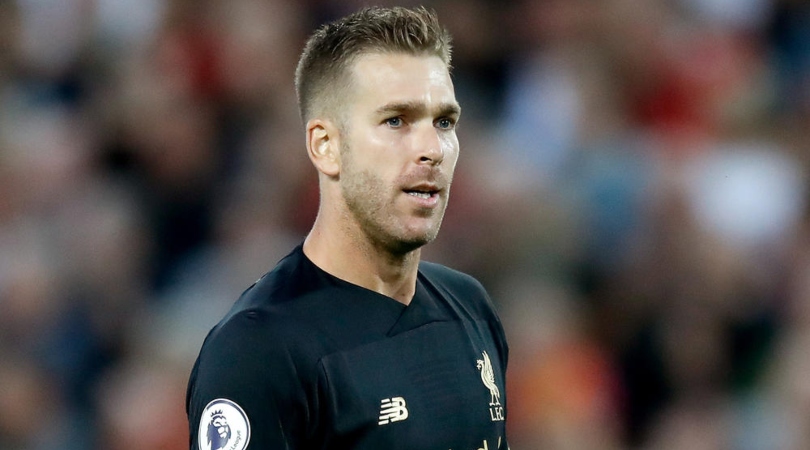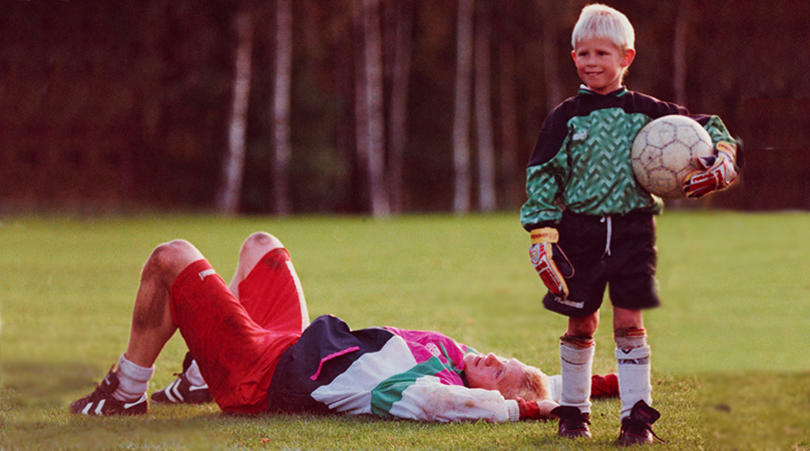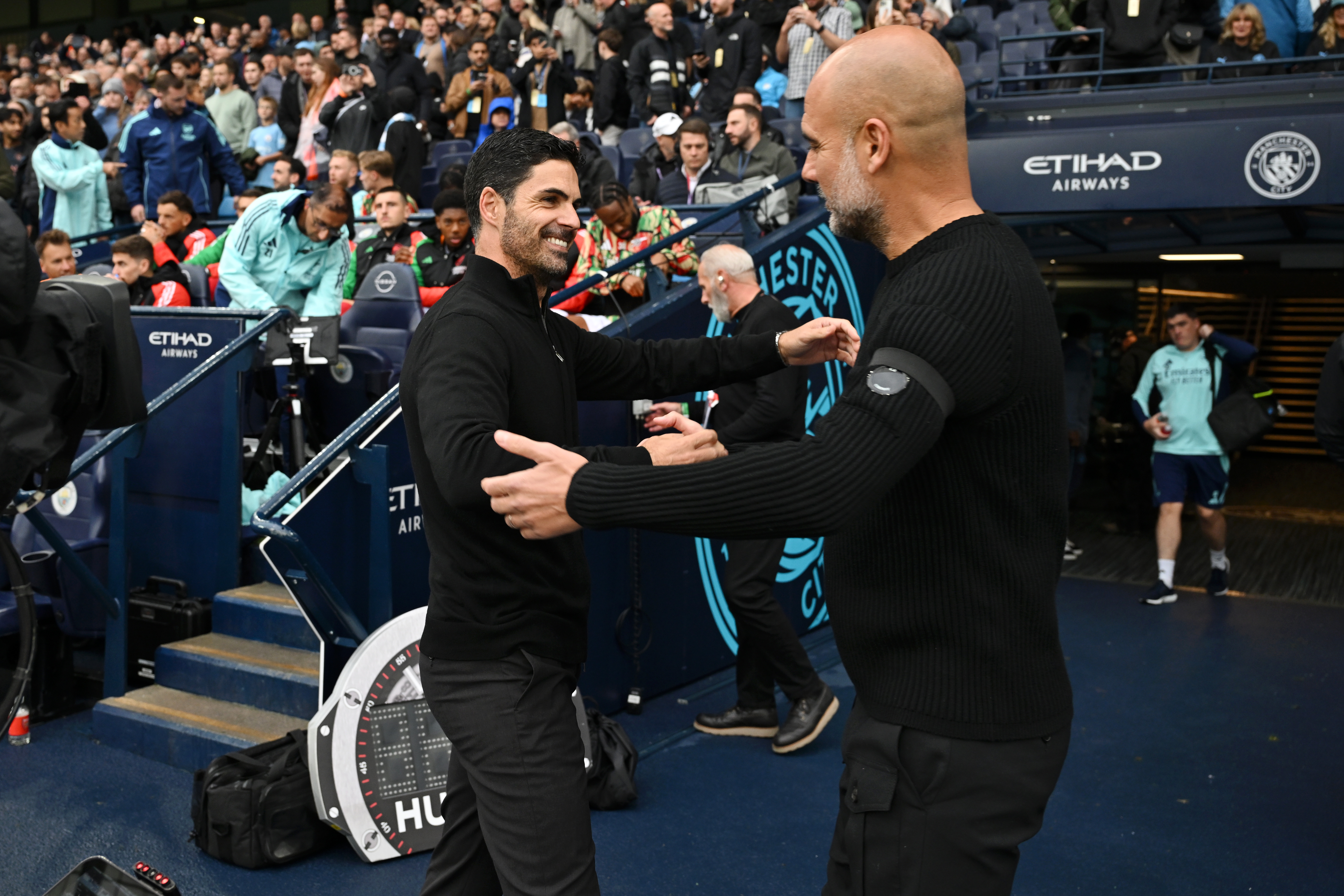10 superb stand-ins who came in and shone unexpectedly
No Alisson, no problem? As Liverpool face a stretch without their first-choice keeper, fans can take heart that players called upon as replacements sometimes turn out to be just fine

Liverpool's new signing Adrian will get his first start for the Reds against Chelsea in the UEFA Super Cup tonight, after first-choice keeper Alisson suffered an injury in the first game of the season.
With the Brazilian one of Liverpool's best performers last season, there will be fears among the Anfield faithful at the prospect of last season's West Ham reserve goalkeeper Adrian – who only joined the Reds nine days ago – taking up a place in the starting line-up over coming weeks.
But should they be so worried? There are plenty of examples of temporary stand-ins doing more than alright...
Trevor Francis (Nottingham Forest, 1979)
“Trevor wasn’t eligible until the later stages of the European Cup,” explained Forest manager Brian Clough, “but I took him along to the games anyway, and he made the lads tea at half-time.”
Clough was always loathed to change a winning team, but niggling injuries to both Archie Gemmill and Martin O’Neill meant Britain’s most expensive footballer finally made his European debut in the Forest side which took on Malmo in the 1979 European Cup Final in Munich.
It was a dour match, save for one moment of pure quality. Portly Scottish winger John Robertson put in a peach of a cross from the left wing and Francis dived to head the winner, tumbling onto the stadium’s shot-put circle as he did so. The million pound man had made his mark on the grandest stage of all.
Get FourFourTwo Newsletter
The best features, fun and footballing quizzes, straight to your inbox every week.
Christopher Wreh (Arsenal, 1998)
Aside from the fact that he was George Weah’s cousin, reserve striker Christopher Wreh’s Arsenal career appeared to be heading nowhere as the Gunners reached the business end of the 1997/98 campaign.
Yet in the midst of an injury and suspension crisis which forced Ian Wright and Dennis Bergkamp to miss matches, the young striker burst onto the scene with explosive winners against Bolton and Wimbledon in tense 1-0 victories. For good measure, Wreh also netted a winner against Wolves in the FA Cup semi-final at Villa Park as Arsenal closed in on the domestic Double.
The Liberian quickly faded from the scene, but his six-week golden spell in spring 1998 – and trademark somersault celebration – is still fondly remembered by Arsenal fans.
Les Sealey (Manchester United, 1990)
Manchester United boss Alex Ferguson and goalkeeper Jim Leighton, who’d played under Fergie for many years at Aberdeen, appeared attached at the hip. But the Scottish stopper’s increasingly nervous displays between the sticks meant rumours began to circulate that Leighton would be sold in the close season.
His form finally imploded during the 1990 FA Cup Final against Crystal Palace, which ended 3-3, and Ferguson axed him for the replay. In came reserve goalie Les Sealey, who’d played barely a handful of games during United’s dreadful league season in which they’d tailed in at 13th.
Sealey, though, kept out Palace’s forward duo of Ian Wright and Mark Bright in the replay, as Fergie won his first trophy at Old Trafford. The flamboyant shot-stopper – who gave Leighton his winner's medal after the game (before eventually realising he would have got one anyway) – even won the European Cup Winners’ Cup the following year, before being replaced by the even mouthier Peter Schmeichel.
Ryan Bertrand (Chelsea, 2012)
Chelsea’s incredible upset of Barcelona in the semi-finals of the 2011/12 Champions League came at a cost of more than just Gary Neville’s vocal cords. The Blues went to the final without the suspended John Terry, Branislav Ivanovic, Raul Meireles and Ramires, while Florent Malouda was only fit enough for the bench.
The end result of an inevitable selection shake-up was full-back Ryan Bertrand making his first ever Champions League appearance. In the final. Against Bayern Munich. At the Allianz Arena. Playing out of position on the left wing.
But the 22-year-old acquitted himself admirably in aiding Ashley Cole to stop the twin threats of Arjen Robben and Philipp Lahm, before being substituted with a knock in the 73rd minute. Bayern scored 10 minutes after Bertrand’s departure, but Didier Drogba’s late header sent the game to extra time and the Blues memorably triumphed on penalties.
Roger Milla (Cameroon, 1990)
The ancient Cameroon forward didn’t actually start any games at Italia ’90, but confirmed his legendary status as the ultimate World Cup super-sub. He began with two goals in his team’s 2-1 group win against Romania, before scoring another double in the last-16 victory against Colombia - where he famously robbed the ball from keeper Rene Higuita, slotted into the net and performed his famous jig around the corner flag in celebration.
Cameroon eventually crashed out in the quarter-finals against England, but not before Milla had set up Eugene Ekeke to give his team a shock 2-1 lead.
NEXT: P-Nev vs PV...
Nigel Spink (Aston Villa, 1982)
The former Chelmsford City goalkeeper had to wait nearly five years to make his Aston Villa debut, and it came in the most dramatic circumstances. Ten minutes into the 1982 European Cup Final between Villa and Bayern Munich, first-choice keeper Jimmy Rimmer got crocked, and Spink entered the fray.
The 23-year-old performed superbly, saving from Klaus Augenthaler and Karl-Heinz Rummenigge as a Peter Withe goal secured Villa a shock victory. Spink became his side’s first-choice goalkeeper midway through the next season, and he went on to play at Villa for 16 more years.
Phil Neville (Manchester United, 2002)
Champions Arsenal were beaten 2-0 at Old Trafford in December 2002 and undone principally in midfield, with makeshift central midfielder Phil Neville actually eclipsing Patrick Vieira and leaving him prostrate on the turf more than once.
When a frustrated Thierry Henry also drifted out wide, Neville again snapped at the Frenchman’s heels, prompting Henry and Vieira to complain bitterly to the referee. “At that point, we knew we had Arsenal beaten,” Neville recalled. The utility man continued to make himself useful for the rest of the campaign as United wrestled the title away from their rivals.
Paul Warhurst (Sheffield Wednesday, 1992/93)
The former Oldham defender had made a solid enough start at Hillsborough after joining Sheffield Wednesday for the 1991/92 campaign, but injuries to strikers David Hirst and Mark Bright led to manager Trevor Francis pushing Warhurst up front.
The shaggy-haired defender-cum-striker responded with gusto, netting 12 goals in as many games as Wednesday reached both domestic cup finals in 1993. His sojourn up front ended all too briefly (he even got called up for England as a striker, only to be cruelly denied an appearance by injury), and after an argument with boss Francis about his best position, he signed for Blackburn that summer – where he duly won the Premier League.
Warhurst then played for a succession of different clubs, and even turned out in midfield regularly. Confusing.
LIST 18 of the most unlikely individual goalscoring seasons ever
John McGinlay (Bolton, 1996)
On a raucous night at Burnden Park, Bolton’s McGinlay put the Trotters 2-1 ahead against Reading. Yet he was busy between his own posts soon after, as the striker replaced Keith Branagan in goal during the second half (Branagan was dismissed following a fracas with the opposition).
The 5ft 9in Scot was in superb form and made several last-ditch saves during a frantic final 26 minutes as his side clung on to win. Manager Colin Todd praised McGinlay’s heroics as “one of the greatest things I’ve ever witnessed in football”.
Geoff Hurst (England, 1966)
Football pundits weren’t entirely convinced that Alf Ramsey’s England would win the World Cup on home soil in 1966, but highlighted Tottenham striker Jimmy Greaves as the man who could score the goals to bring them glory.
Yet Greaves endured a wretched tournament and a deep cut to his shin, sustained against France in a group stage match, saw him replaced by West Ham’s Hurst in the quarter-finals. The Hammers hitman promptly netted against Argentina and later kept his place for the final, despite media pleas for Greaves to return. But then came that sensational hat-trick – winning England the World Cup and proving that Ramsey's faith wasn't misplaced.
While you're here, why not take advantage of our brilliant new subscribers' offer? Get 5 copies of the world's greatest football magazine for just £5 – the game's greatest stories and finest journalism direct to your door for less than the cost of a London pint. Cheers!
NOW READ
LONG READ A year with Marcelo Bielsa: the inside story of Leeds United's revival
OPINION Why Premier League clubs may have actually spent more intelligently than ever before in summer 2019
REMEMBERED The last all-English Super Cup: remembering the country's most hated competition
Jon Spurling is a history and politics teacher in his day job, but has written articles and interviewed footballers for numerous publications at home and abroad over the last 25 years. He is a long-time contributor to FourFourTwo and has authored seven books, including the best-selling Highbury: The Story of Arsenal in N5, and Get It On: How The '70s Rocked Football was published in March 2022.




